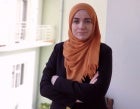Breadcrumb
Stories
Topic
- Show all (1287)
- Safe Cities and Safe Public Spaces (-) (10)
- Urban development (-) (2)
- Ending violence against women and girls (72)
- Gender equality and women’s empowerment (45)
- Anti-violence interventions (42)
- Gender discrimination (38)
- Gender equality and inequality (38)
- Domestic violence/interpersonal violence (36)
- Access to justice and legal protection (34)
- Legal assistance (30)
- Laws, legislation (27)
- Primary prevention (25)
- Gender-responsive budgeting (24)
- Sexual harassment (24)
- Feminicide/femicide (23)
- Service delivery (23)
- Economic empowerment (22)
- Rape/sexual assault (21)
- Shelters (21)
- Employment (20)
- Rural women (19)
- Entrepreneurship (18)
- Decision-making (16)
- Youth (16)
- Gender power relations (15)
- Women’s rights (15)
- COVID-19 (14)
- Financing for gender equality (13)
- Gender mainstreaming (13)
- Civil society (12)
- Gender, culture and society (12)
- Men and boys (masculinity) (12)
- Political empowerment (12)
- Access to basic services (11)
- Adolescents (11)
- Beijing Platform for Action (11)
- Businesses and foundations (11)
- Girls (11)
- Human rights (11)
- UNiTE campaign (11)
- Civil society participation (10)
- Peace and security (10)
- Training (10)
- Women with disabilities (10)
- Convention on the Elimination of All Forms of Discrimination against Women (CEDAW) (9)
- Financial resources (9)
- Gender stereotypes (9)
- Information and communications technology (ICT) (9)
- Leadership and political participation (9)
- National planning (9)
- Partnerships (9)
- Governance (8)
- Innovation and technology (8)
- Institutional mechanisms (8)
- Peacebuilding (8)
- Social protection (8)
- Women farmers (8)
- Citizen engagement (7)
- Gender statistics (7)
- Generation Equality (7)
- Government contributors (7)
- Productive resources (7)
- Religion (7)
- Science and technology for development (7)
- Sports (7)
- Trafficking/sexual exploitation (7)
- Women’s movements (7)
- 2030 Agenda for Sustainable Development (6)
- Child marriage (6)
- Communications and media (6)
- Electoral systems and processes (6)
- Lesbian, gay, bisexual, transgender, intersex (LGBT) rights (6)
- Markets (6)
- Political violence (6)
- Sex-disaggregated data (6)
- Sustainable Development Goals (SDGs) (6)
- Traditional media (6)
- Unpaid work (6)
- Accountability (5)
- Gender data production and collection (5)
- Governance and national planning (5)
- New media (5)
- Rural development (5)
- Constitutions and legal reform (4)
- Gender data gaps (4)
- Gender data use and accessibility (4)
- Gender wage gap (4)
- Health (4)
- Intergovernmental processes (4)
- Land and property (4)
- Media leadership (4)
- Poverty (4)
- Public administration (4)
- Rule of law (4)
- Schooling (4)
- Accountability in the UN system (3)
- Climate change (3)
- Crisis response and recovery (3)
- Education (3)
- Environmental protection (3)
- Gender equality indicators (3)
- Health care services (3)
- Inheritance rights (3)
- Living conditions (3)
- National mechanisms (3)
- National statistical systems (3)
- Parliamentary development (3)
- UN Security Council resolution 1325 (3)
- UN system coordination (3)
- Capacity development (2)
- Coordination, knowledge management (2)
- Disaster risk reduction (2)
- Food security (2)
- Fundamental freedoms (2)
- Fund for Gender Equality (2)
- Harmful practices (2)
- Humanitarian action (2)
- Human rights–based approach (2)
- Macroeconomic policies (2)
- Monitoring and evaluation (2)
- Planning and monitoring (2)
- Sexual and reproductive health and rights (2)
- UN Security Council resolutions (2)
- Åsa Regnér, Deputy Executive Director for Policy, Programme, Civil Society and Intergovernmental Support (1)
- Children’s rights (1)
- Commission on the Status of Women (1)
- Executive Director (1)
- Financial and economic crisis (1)
- Green economy (1)
- Literacy (1)
- Local development (1)
- Maternal health (1)
- Migration (1)
- Monitoring, evaluation and reporting (1)
- Peace processes (1)
- Public sector reform (1)
- Sexuality (1)
- Temporary special measures, affirmative action (1)
- UN Trust Fund to End Violence against Women (1)
Region
Country
1 - 12 of 12 Results
Date:
In Berat, Albania, Nadire Hyseni’s journey showcases the impact of participatory gender budgeting. With UN Women’s support and Swiss funding, women from marginalized communities are advocating for their needs and influencing local decisions.
Date:
In Albania, parents and young mothers are shaping their communities through participatory decision-making. With UN Women's support, the "Today for the Future" Community Development Center helps them advocate for their needs and influence public budgets.
Date:
They are asking for increased long-term, sustainable investments from government, private sector, foundations, and other donors to prevent violence against women and girls.
Date:
Gjeline Doda, from Lezha, northwest Albania, is one of the first educators in Albania certified as an Empowerment Self-Defense (ESD) instructor in 2021. Apart from teaching high school math, which she has been doing for almost 15 years, she is now working to empower and teach personal safety to a new generation by boosting students’ self-esteem and communications skills to prevent and mitigate the risk of violence.
Date:
Anjeza Bojaxhiu is the local coordinator of the domestic violence referral mechanism – a dedicated mechanism that aims to protect and support survivors of violence, composed of a team of community professionals in Tirana, Albania. With extensive experience in good local governance and social services for women and girls from disadvantaged groups, Ms. Bojaxhiu shares the most promising practices related to establishing and operating local referral systems as well as ways to address challenges that may arise.
Date:
The UN Women office in Albania teamed up with the government, civil society organizations, international partners, and other UN agencies operating in the country to mark this year's 16 Days of Activism against Gender-based Violence with a variety of public events, university lectures, trainings, social media campaigns and much more.
Date:
The Ministry of Health and Social Protection and UN Agencies in Albania launched the “16 Days of Activism against Gender-Based Violence” campaign supported by UN Women. The event brought together government and international partners, feminists, women’s rights activists, as well as many others who work every day to prevent and eliminate violence against women and girls.
Date:
As a result of continuous lobbying efforts, Empowerment through Self Defense has now become part of the first National Strategy for Youth and its Action Plan 2022-2029 which was approved in October of the current year. This innovative approach addresses gender equality by helping build healthy interpersonal relations and empowers girls and boys.
Date:
Afërdita Prroni, the Executive Director of the Human Rights in Democracy Center, a grassroot civil society organization involved in promoting and protecting human rights in Albania, has been working to strengthen the implementation of the domestic violence law under UN Joint Programme on “Ending Violence Against Women in Albania” and UN Women’s project “Gender sensitive post-earthquake recovery and reconstruction” funded by the Swedish Government.
Date:
Over 1200 students around Albania were trained boosting their the self-esteem and strengthening their safety.
Date:
Stela Tanellari is the Deputy Director and Reintegration Programme Manager of Different and Equal, an organisation in Albania that provides services for women survivors of violence. It has developed a complex approach for women’s economic reintegration under UN Women’s regional programme on ending violence against women “Implementing Norms, Changing Minds,” funded by the European Union.
Date:
The study, the third on this issue in Albania, reveals that women and girls face many forms of harassment, especially those of a verbal nature.
1 - 12 of 12 Results









